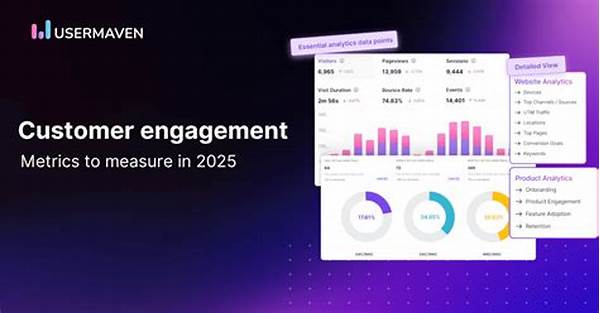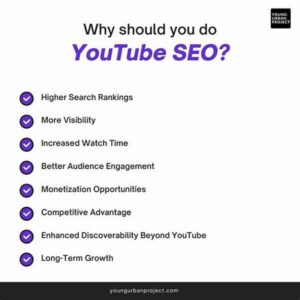The year is 2025, and the business landscape is more competitive than ever. In this fast-paced world, understanding your audience’s behavior is not just important — it is crucial. Engagement metrics have become the key to unlocking these insights. But why do engagement metrics matter in 2025, and why should you care? Let’s dive into why understanding these metrics can be your secret weapon in navigating the future of business.
Read More : How To Rank Your Videos Higher On Youtube Search
In 2025, companies that succeed will be those that connect with their customers on a deeper level. Understanding engagement metrics like time spent on pages, click-through rates, and social media interactions can help businesses create strategies that resonate with their audience. But it’s not all about stats and numbers. It’s about creating a relationship and a dialogue. Imagine your business as a party host, and your customers are the guests. Engagement metrics are the conversation starters that ensure your guests stay entertained and your party is the talk of the town. The ultimate goal? Skyrocket your brand to unmatched heights.
So, how do these engagement metrics translate into business success? By analyzing these insights, companies can create targeted campaigns tailored to their audience’s preferences. For instance, if research shows that users love cat memes, then your marketing strategy better includes some feline fun. Capitalizing on these insights doesn’t just boost brand loyalty, it garners trust. And in 2025, trust is the currency of the digital age. So, don’t just collect data. Interpret it, use it, and let it guide your way to becoming the leader in your industry, proving precisely why engagement metrics matter in 2025.
The Impact of Engagement Metrics on Business Strategy
In the context of marketing, engagement metrics in 2025 help businesses shape their messaging to be more relatable and impactful. Traditional forms of advertising where businesses shout their messages are obsolete. Customers expect brands to listen, adapt, and offer solutions that cater to their specific needs. Engagement metrics provide the real-time feedback necessary for this level of customization.
Moving forward, understanding why engagement metrics matter in 2025 also involves realizing their importance in anticipating market trends. By analyzing what users engage with, businesses can foresee changes in consumer behavior and potentially disruptive trends. This proactive approach not only retains customers but attracts new ones eager for a brand that stays ahead of the curve. Thus, engagement metrics become the GPS that navigates organizations toward success in the crowded marketplace of 2025.
Influence of Social Engagement in 2025
The digital environment of 2025 is more immersive than ever, with social engagement playing a pivotal role. No longer constrained to likes and shares, engagement now includes intricate interactions via virtual and augmented reality experiences. By measuring these complex interactions, companies gain insights into consumer preferences that traditional metrics miss. This not only cultivates a richer customer relationship but also solidifies a brand’s identity in both virtual and physical realms.
Moreover, user-generated content becomes the go-to marketing strategy. Reviews, testimonials, and personal stories shared through engagement create authentic brand ambassadors. Understanding why engagement metrics matter in 2025 lies in their ability to quantify this authentic engagement and harness it for exponential brand growth. In essence, when customers speak, the engaged company listens, learns, and evolves.
Actions to Enhance Engagement Metrics by 2025
Goals of Utilizing Engagement Metrics
In the crowded digital space of 2025, engagement metrics stand as the beacon guiding businesses towards meaningful growth. These metrics shift the focus from merely acquiring customers to nurturing long-lasting relationships. By understanding interactions at a granular level, companies can fulfill the consumers’ demand for personalized, authentic, and immediate content. This shift towards intimate customer relationships pays off with increased loyalty, higher conversion rates, and enhanced brand reputation.
The overarching objective of focusing on these metrics is to create a reciprocal relationship where businesses and consumers grow together. When a brand truly understands its audience, it can pivot strategies to meet new demands expediently, fostering innovation and sustaining relevance. Thus, why engagement metrics matter in 2025 is not just about data collection; it’s about reshaping how brands connect and evolve with their audience, ensuring prosperity in the years to come.
Future Trends in Engagement Metrics
Engagement metrics are set to evolve as technology and consumer expectations continue to shift. By 2025, several trends are expected to redefine these metrics further.
The Significance of Engagement Metrics in Shaping Future Strategies
As businesses gear up to face the demands of 2025, understanding why engagement metrics matter in 2025 could be the deciding factor between exponential growth and falling behind competitors. The ability to track, analyze, and act on these metrics ensures companies remain agile and consumer-focused.
Ultimately, while the tools might change, the essence remains: engagement metrics are about people. They offer insight into what makes customers tick, which in turn fuels creativity and strategic foresight. By tapping into these insights, businesses are poised to deliver innovative solutions, create impactful experiences, and ultimately, lead the charge into an exciting future.
By continually adapting to these insights, brands can ensure their strategies are not only effective but also future-proofed against the ever-evolving marketplace. Why engagement metrics matter in 2025 might seem like a topic of the distant future, but the actions taken today will lay the foundation for success. So, gear up for the future by listening, interpreting, and engaging — because in 2025, that’s where the magic happens.




